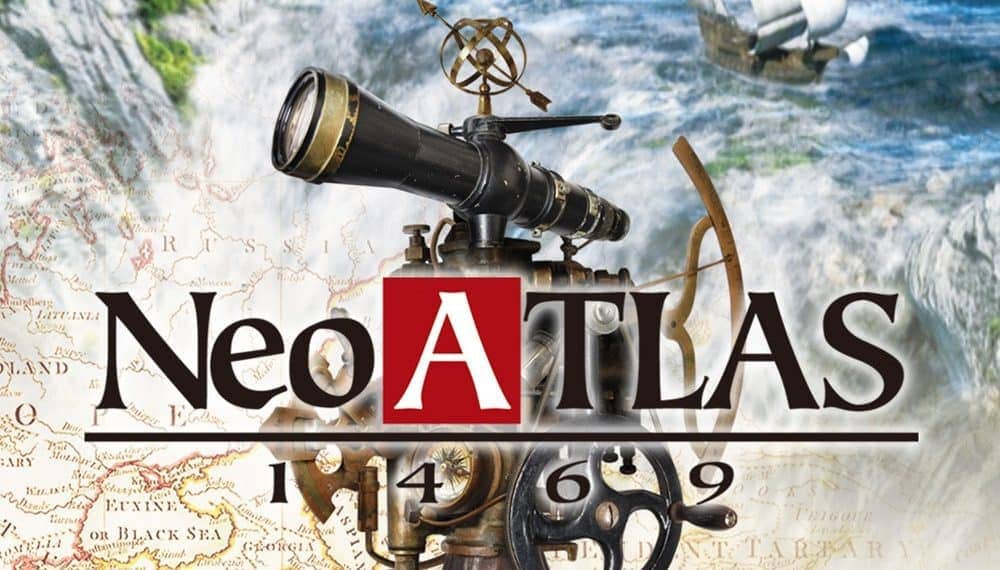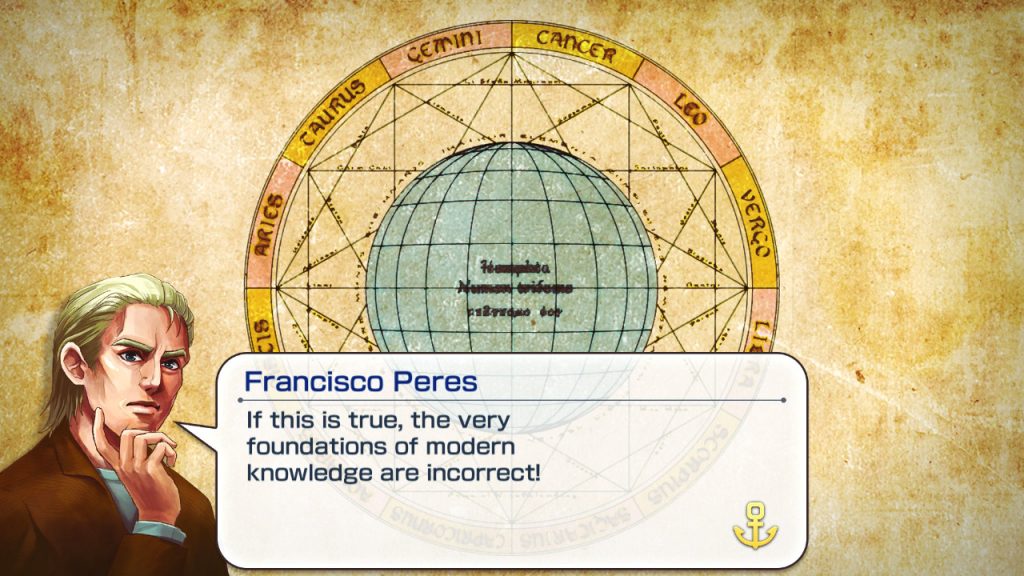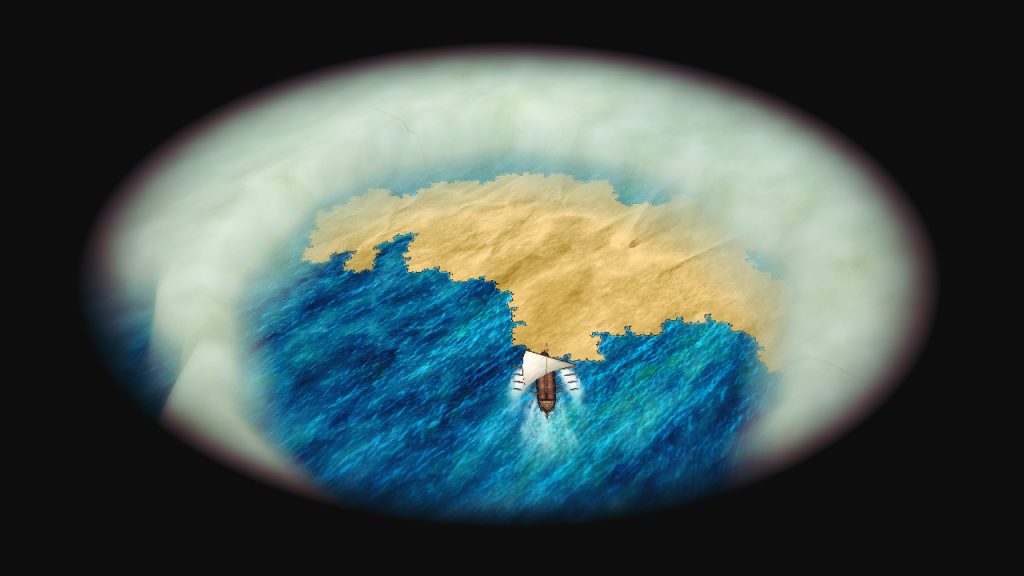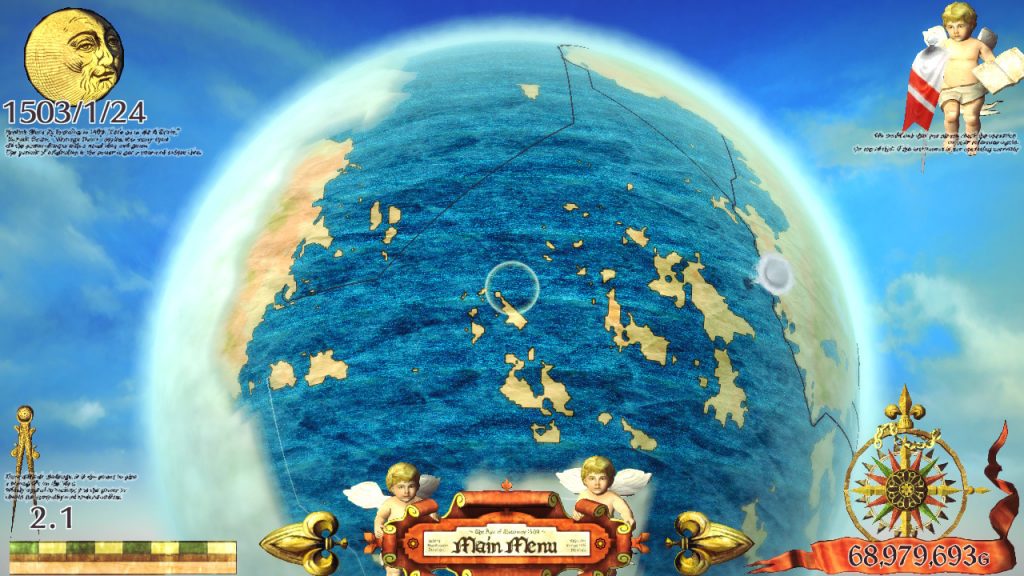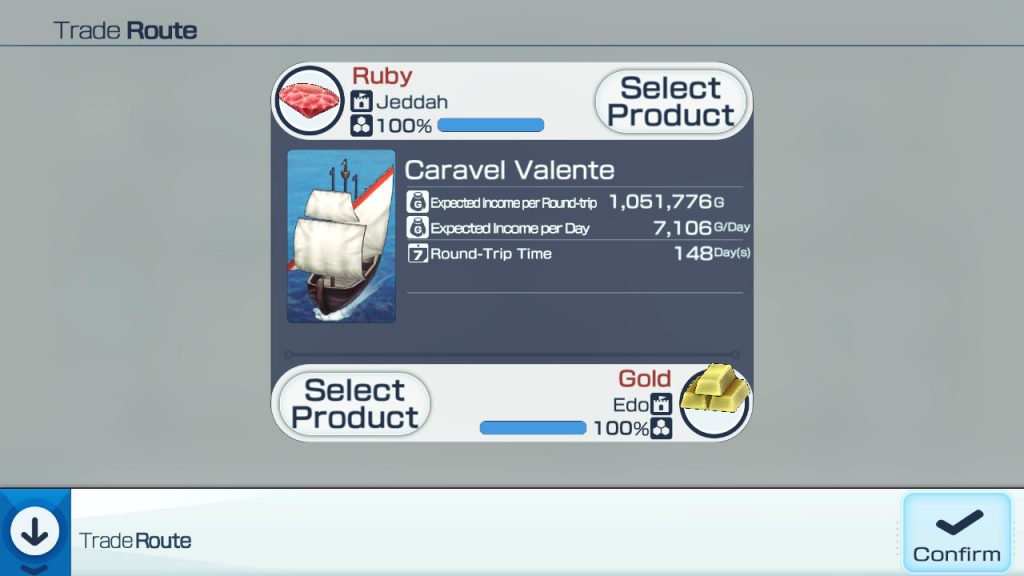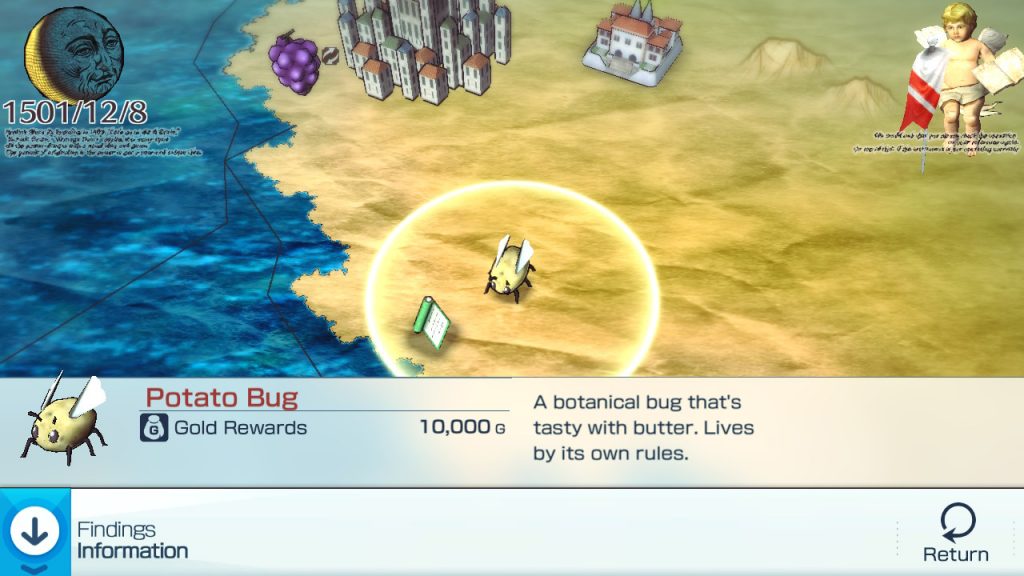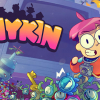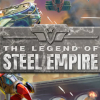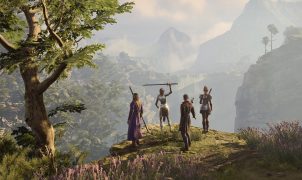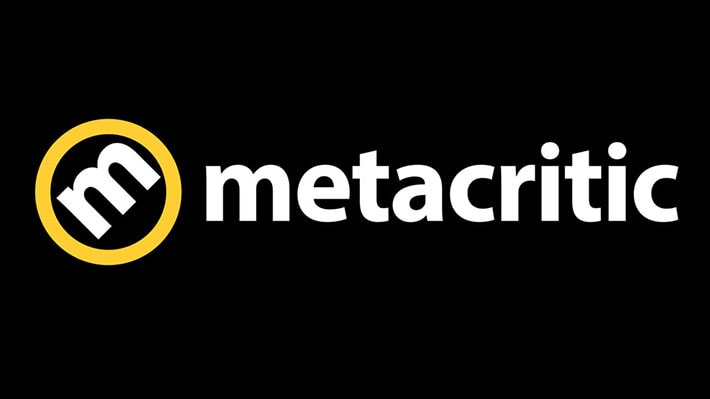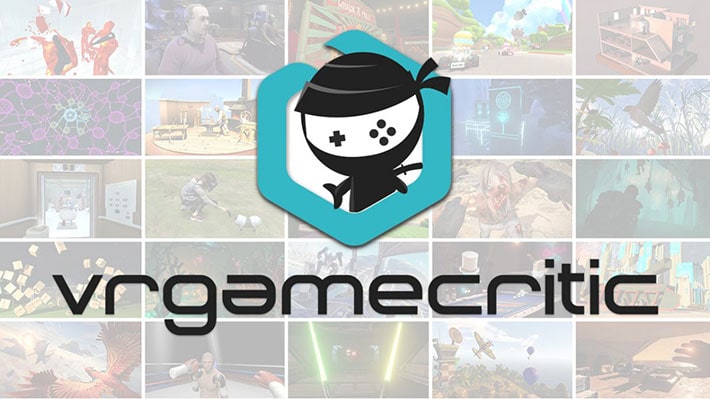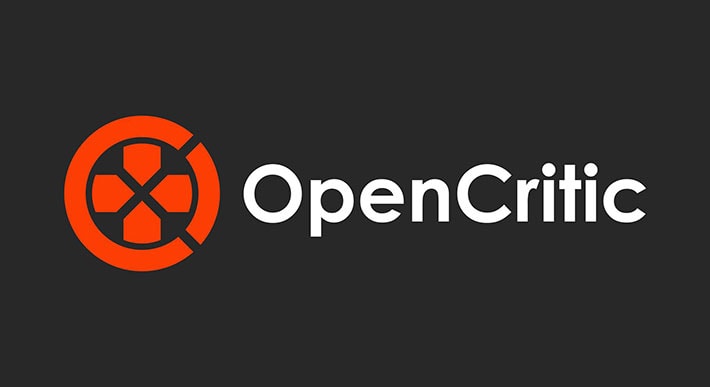Not-So-Dreary Flat Earth Theory
I’ll be the first to admit that Neo ATLAS 1469 appeared to be well out of my wheelhouse when I began playing it. I’m terrible with maps (to put it lightly), have little interest in the old world, and almost never play simulation games. To sum it up, I assumed that this game and I weren’t going to mesh well. But, hey, you know what they say about assumptions, right? Sure you do — and that’s exactly what ended up happening to me. Despite not being so sure about it in the beginning, Neo ATLAS 1469 was a title that slowly but surely grew on me, much like the ever-expanding world map that I was filling out, and soon enough it became a comfortable part of my own gaming world.
Neo ATLAS 1469 is, to be blunt, weird. It disguises itself as a pseudo-historical game with a very unique cartography mechanic thrown in for good measure, thus presenting itself fairly dryly to unsuspecting players — such as yours truly. But there is much more fiction than fact going on here — and I’m talking about more than just the map-making — than this title originally lets on. And, the more weirdness that I was exposed to, the more I yearned to keep on exploring.
Money Makes the World Go ‘Round
Neo ATLAS 1469 features a simple story with a not-so-simple end goal. Taking place within a time (1469, to be exact) when the societies of the world were beginning to realize that planet Earth was much bigger than they had originally suspected, Neo ATLAS 1469 tells the tale of a previously well-to-do Portuguese trading company, now led by none other than you, the player, attempting to once again restore itself to its former glory. Thanks to the addition of your latest admiral, one Francisco Peres, however, you find yourself saddled with a task so big that others before you considered it to be impossible — to prove that the world is spherical. While this theory is still under a great deal of scrutiny from most of the modern world during this time, believing it isn’t the metaphorical (or perhaps literal) death sentence it once was — and it now lies on the shoulders of your company to prove it to be true once and for all (and make tons of money in the process).
Despite having a primary goal, Neo ATLAS 1469 doesn’t have much going on in terms of a grand narrative — a fact which shouldn’t be surprising giving that this is a sim game. What is surprising, though, is the number of sub-narratives that this game has going on. Rather than hiring nameless, faceless, admirals do your bidding as you see fit, you’ll slowly recruit admirals as you progress throughout the game (about half of which aren’t even mandatory) and uncover more about them the more use they get. Truthfully, this smattering of sub-plots does get in the way of actual gameplay at times, but it’s not all bad. The stories themselves are honestly very interesting — ranging from tales of family ties to ones dealing with literal curses — and provide worthwhile rewards for players should they choose to pursue them to their conclusion (which is mostly your call).
Changing Your Worldview
As I’ve already mentioned, Neo ATLAS 1469 asks but one simple thing of its players — to discover the world in its entirety. That’s a pretty lofty goal, of course, so it probably won’t shock you when I tell you that it’s not quite as easy as it sounds. Almost the entirety of the world map is covered by a thick fog, and the only way to get rid of it is by uncovering what is hiding beneath it. This is where the core exploration mechanic of this game comes into play and, contrary to the real year 1469 (or any year, really), sailing around blindly isn’t nearly as dangerous as it sounds. In fact, that’s what you’re supposed to do. By constructing fleets and charting expeditions of into the Great Foggy Beyond, players will slowly begin uncovering bits of the world map each time their fleet makes it back home. This increased visibility, then, lets players seek out new towns with which to trade, new treasures to take, and new events to experience — thus allowing them to continue their seafaring cycle once more.
I know what some of you are thinking after reading that. “This is easy! I already know what the world looks like, so I already know where to go!” Yeah, well, about that… You don’t, actually. Outside of that teensy bit of geographically accurate land that you’re given in the beginning, the rest of the world is procedurally generated. The general locations of each continent will remain the same, but the continents themselves won’t. I mean, last I checked (and I did say that I was bad with maps so feel free to fact-check me), Canada wasn’t attached to the North Pole. And I remember Africa being a lot less island-y, too. As a fan of procedural generation in most cases, I really liked this mechanic. Not knowing what you’re going to find each time you send your fleet out makes the game much more exciting, and I was always eager to hear back from my admirals. Just make sure that you equip your fleet properly — not every ship is designed to go to every location!
It gets better, though. Let’s say an admiral reports back to you, and you didn’t like what you saw. It could be for a legitimate reason — like finding a landlocked, and thereby unobtainable resource — or it could be cosmetic — like not liking the weird shape of an island. The reason doesn’t matter. What does matter is that you can refuse those reports which you find unsatisfactory. By telling your admiral “no, that’s not what you saw, go look again”, you can obtain a new report featuring different results — thus literally giving you the power to shape the world how you see fit. Some of you might not make use of this feature. I didn’t at first, either. However, the more that I played, the more useful and enjoyable it started to become. By crafting the world to your expectations, you can open up a lot of new routes (both creatively and literally) and the more effort you put into praying to the RNG gods (they’re nice this time around, don’t worry), the more satisfying your world map will end up looking in the end. Now, to be fair, this can get somewhat tedious. On top of the fact that you’re re-exploring the same area over and over, the admirals constantly stop mid-report with filler about how their sailors liked the song they sang or about how they cured scurvy (which literally has no effect on the game). Yes, they always do this. No, you can’t turn it off. And yes, it will definitely wear out its welcome at some point. Still, compared to everything else that this part of the game has going for it, it isn’t a huge deal.
The King of Ka-Ching
Morphing the way humanity sees the Earth is important and all, but travel isn’t cheap — especially travel into uncharted territory. Fortunately, Neo ALTAS 1469 has plenty of ways to help players fill their coffers alongside the map. The first and most obvious way of making bank is trading. As the head of the trading company, players are allowed to establish routes which allow them to — what else — trade products between towns and cities. At first, that might sound kind of tricky, but there’s no need to worry — you don’t have to be an economic guru in order to be profitable in this game. Trading essentially boils down to a few key things; price, and stock. You want to trade valuable goods, and you want to make sure that the places trading with each other aren’t experiencing any kind of a shortage of supply. While price is easy enough to gauge, as prices literally never fluctuate, stock problems tend to rear their head. This means that, unfortunately, you won’t be able to simply trade between two places forever — abolishing and establishing trade routes on a semi-consistent basis is the only way to stay out of the red. As annoying as this is, it doesn’t happen to the point of inhibiting the game’s fun factor, and it does add some extra depth to the game for those out there who like playing around with numbers.
Ships also play an important role in trading and are actually pretty fun to mess around with. As you progress through your world-charting expedition, you will find manuals which will allow you to build new kinds of ships — such as the speedy Caravel Valante, or the tanky Mil Pedra — who can help to lessen the burden of the trade game. While these specialty ships don’t matter much in the beginning, they become an imperative part of the trade process as you progress — especially when it comes to dealing with pirates. Fortunately, as with trading itself, knowing the ins and outs of every ship won’t mean the difference between living large and swimming in squalor. At least, not entirely.
Players can also earn some pocket money by performing investigations. As you explore, you won’t just uncover new land, but new locations and creatures as well — and what you find will determine how you go about investigating it. Locations, such as caves, forests, and towns, require that an actual fleet is sent out via the investigation command. While investigations can take a long time, and often require a bit of prep work beforehand (such as dispatching a certain character or equipping your fleet with a specific item), their rewards are often well worth it — ranging anywhere from ludicrous amounts of money to new items and admirals. Investigations are also crucial to most of the admiral’s own specific plots, meaning that if you want to learn as much as possible about your crew then it’s best that you’re constantly investigating anything and everything that pops up.
Additionally, players can also look around the world map themselves. While typically not as immediately rewarding as actual investigations, uncovering new locations and treasures by yourself, or with the help of the all-knowing Jidale’s Pendulum, these player-discovered locations generally lead to something nice in the long run as well. And hey, who doesn’t like a good game of hide-and-seek?
A Quest Worth Undertaking
Neo ATLAS 1469 lies comfortably in the middle of casual and hardcore and is capable of drawing in players from both sides. While it doesn’t feature the most densely packed amount of content that I’ve ever seen out a simulation, it also isn’t stripped down to the bare basics. A lot of what this game gives to its players is determined by what the player themselves put in. And, although that kind of exploratory prerequisite may turn off certain players, it sets the pace for a game based upon the excitement of exploration quite well.
Final Verdict: 3.5/5
Available on: Switch (Reviewed), PC ; Publisher: NIS America, Inc. ; Developer: Studio Artdink ; Players: 1 ; Released: April 19, 2019 ; ESRB: E10+ for Everyone Ages 10+ ; MSRP: $59.99
Full disclosure: This review is based on a copy of Neo ATLAS 1469 given to Hey Poor Player by the publisher.

